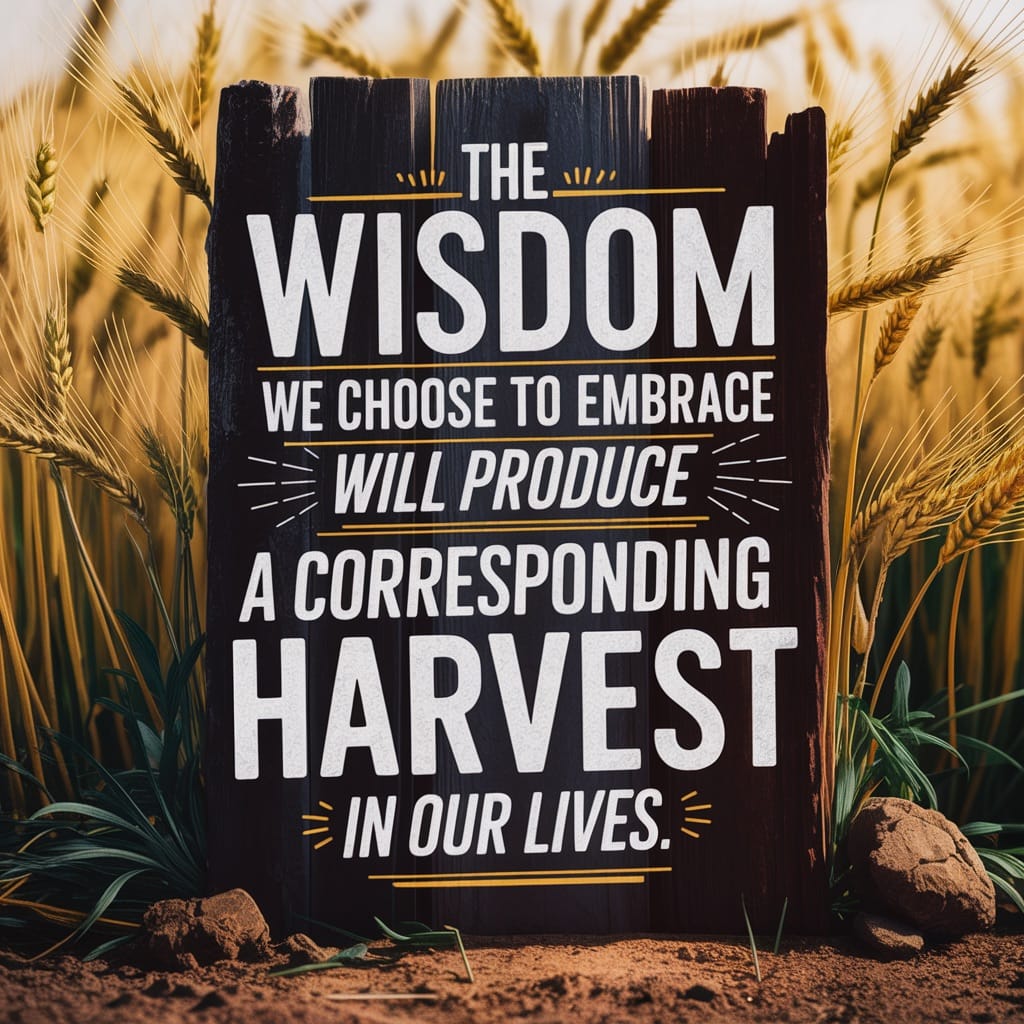Summary
Dive into James 3:13-18 and discover the path to true wisdom. This enlightening passage contrasts the disorder and evil practices stemming from worldly wisdom with the pure, gentle, and peace-loving nature of godly wisdom. Learn practical steps to apply this wisdom in your life, from pursuing humility to showing mercy. Embrace the transformative power of God’s truth and experience the bountiful harvest of righteousness that comes from living by His wisdom
Faith Un-Packed Discussion Podcast Episode
Listen to our podcast episode that discusses the key insights from this thread.
Swift Sage Shorts
Thread
Reflections on James 3:13-18
Are you struggling to discern true wisdom in a world full of deception and bad advice?
In today’s fast-paced world, we’re bombarded with conflicting advice and philosophies claiming to offer wisdom. How can we distinguish between godly wisdom and worldly deception? James 3:13-18 provides crucial insights to help us navigate this challenge and cultivate true, life-giving wisdom.
The Problem of Competing Wisdoms
Many of us find ourselves torn between different sources of wisdom. We may seek guidance from self-help books, motivational speakers, or popular philosophies while wondering if these align with God’s truth. James addresses this dilemma head-on, challenging us to examine the fruit of the wisdom we embrace.
Identifying Godly Wisdom
James begins by asking, “Who among you is wise and understanding?” He then provides a key indicator: godly wisdom is revealed through good conduct and gentleness. This might surprise us, as we often associate wisdom with intellectual knowledge or eloquent speech. However, true wisdom manifests in our actions and demeanor.
Godly wisdom is characterized by:
1. Humility
2. Good works
3. Gentleness
These qualities reflect the nature of Christ Himself, who came as a gentle king (Matthew 21:5) and embodied the fruit of the Spirit (Galatians 5:22-23).
The Dangers of Worldly Wisdom
In contrast, James warns against two hallmarks of worldly wisdom:
1. Bitter envy
2. Selfish ambition
These toxic attitudes can creep into our hearts, leading to rivalry, resentment, and a willingness to harm others for personal gain. James describes this wisdom as “earthly, unspiritual, demonic,” highlighting its destructive nature.
Worldly wisdom often appears beneficial initially but ultimately leads to “disorder and every evil practice.” It’s crucial to recognize these warning signs in our own lives and resist the temptation to embrace such harmful philosophies.
Cultivating Godly Wisdom
James presents a beautiful picture of true wisdom, describing it as:
1. Pure
2. Peace-loving
3. Gentle
4. Compliant
5. Full of mercy
6. Full of good fruits
7. Unwavering
8. Without pretense
These qualities align closely with the Beatitudes in Matthew 5 (specifically verses 5-9), reminding us that godly wisdom leads to blessedness and a life that honors God.
The Harvest of Wisdom
James concludes with a powerful image: “And the fruit of righteousness is sown in peace by those who cultivate peace.” This agricultural metaphor emphasizes that the wisdom we choose to embrace will produce a corresponding harvest in our lives.
Worldly wisdom, rooted in envy and selfish ambition, yields a harvest of disorder and evil. In contrast, godly wisdom produces righteousness, peace, and a life marked by Christ-like character.
Applying Wisdom to Daily Life
As we seek to cultivate godly wisdom, consider these practical steps:
1. Examine your motives: Are your actions driven by envy or selfish ambition?
2. Pursue humility: Practice gentleness in your interactions with others.
3. Seek peace: Look for ways to be a peacemaker in your relationships and community.
4. Embrace purity: Guard your heart and mind against worldly influences.
5. Show mercy: Extend compassion to others, even when it’s difficult.
6. Bear good fruit: Let your life be marked by good works that glorify God.
Conclusion: Choosing Wisdom’s Path
The wisdom we embrace shapes our character, actions, and ultimately, our legacy. By intentionally pursuing godly wisdom, as described in James 3:13-18, we can experience the transformative power of God’s truth in our lives.
As you study this passage, ask the Holy Spirit to reveal areas where you may have unknowingly embraced worldly wisdom. Seek His guidance in cultivating the pure, peace-loving, and gentle wisdom that comes from above. Remember, the harvest of righteousness awaits those who faithfully sow seeds of godly wisdom in their daily lives.
Sharable Quote-Graphics



FAQs
1. What is the central challenge in discerning wisdom in today’s world?
The main challenge lies in distinguishing between godly wisdom and worldly deception. We are constantly bombarded with conflicting advice from various sources, making it difficult to identify what aligns with God’s truth.
2. According to James 3:13-18, how can we identify godly wisdom?
Godly wisdom, unlike popular belief, is not merely intellectual knowledge or eloquent speech. It manifests primarily through our actions and demeanor. Key indicators of godly wisdom include humility, good works, and gentleness, reflecting the nature of Christ Himself.
3. What are the dangers associated with worldly wisdom?
Worldly wisdom is characterized by bitter envy and selfish ambition. These attitudes breed rivalry, resentment, and a willingness to harm others for personal gain. Ultimately, it leads to disorder and harmful practices, despite appearing beneficial initially.
4. How does James describe the characteristics of true, godly wisdom?
True wisdom is described as pure, peace-loving, gentle, compliant, merciful, fruitful, unwavering, and sincere. These qualities align with the Beatitudes, highlighting a life that honors God and leads to blessedness.
5. What is the significance of the agricultural metaphor used in James 3:18?
The metaphor emphasizes that the type of wisdom we cultivate will yield a corresponding harvest in our lives. Worldly wisdom produces disorder and evil, while godly wisdom yields righteousness and peace, shaping our character and actions.
6. How can we actively cultivate godly wisdom in our daily lives?
We can cultivate godly wisdom by examining our motives for any envy or selfish ambition, practicing humility and gentleness in our interactions, actively seeking peace in our relationships, guarding our hearts and minds against negative influences, showing mercy and compassion to others, and striving to bear good fruit that glorifies God.
7. What is the ultimate outcome of embracing godly wisdom?
Embracing godly wisdom leads to a transformative experience, allowing God’s truth to shape our character, actions, and ultimately our legacy. It results in a life marked by righteousness, peace, and Christ-like qualities.
8. What role does the Holy Spirit play in our pursuit of wisdom?
The Holy Spirit plays a crucial role in revealing any areas where we might be unknowingly embracing worldly wisdom. We should actively seek His guidance to cultivate the pure, peace-loving, and gentle wisdom that comes from above.

Glossary of Christianeze Words
Godly Wisdom: Wisdom that originates from God and aligns with His character and will. It is characterized by humility, good works, gentleness, purity, peace-loving nature, mercy, good fruits, unwavering faith, and genuineness.
Worldly Wisdom: Wisdom derived from human reasoning and worldly values, often driven by envy, selfish ambition, and a desire for personal gain. It ultimately leads to disorder, conflict, and evil.
Fruit of Righteousness: The positive outcomes and blessings that result from living a life guided by godly wisdom. This includes peace, joy, love, and a transformed character.
Gentleness: A quality of humility, meekness, and kindness, reflecting the nature of Christ and demonstrating the power of true wisdom.
Peacemaker: Someone who actively seeks to resolve conflict, promote harmony, and foster peaceful relationships in their interactions with others.
Cultivate: To nurture, develop, and foster the growth of something, in this context referring to the intentional effort required to develop godly wisdom.
Harvest: A metaphor used to describe the results or consequences of the choices we make. The type of “seed” (wisdom) we sow determines the nature of the “harvest” we reap.
Study Questions
Context:
1. What Beatitudes are listed in Matthew 5?
2. What major theme does James address in this section?
3. How does this passage (James 3:13-18) connect to the wisdom he mentions in the first chapter?
4. Are there any similar teachings about wisdom in other parts of the Bible?
Observation:
1. What question does James ask at the beginning of this passage?
2. How does James say we can recognize someone who is wise?
3. What two negative qualities does James associate with earthly wisdom?
4. What words does James use to describe the wisdom from above?
5. What image does James use to describe the result of wisdom in verse 18?
Meaning:
1. Why do you think James connects wisdom with good conduct?
2. What does James mean by “earthly, unspiritual, demonic” wisdom?
3. How does the description of heavenly wisdom compare to Jesus’ teachings?
4. What is the significance of wisdom being “pure” as the first quality listed?
5. How does the idea of “sowing in peace” relate to wisdom?
Application:
1. What is one way you apply a quality of godly wisdom in your daily life?
2. Are there areas in your life where you might be operating with “earthly” wisdom?
3. How can cultivating peace lead to a “harvest of righteousness” in your relationships?
4. What steps can you take to grow in the kind of wisdom James describes?
5. How might your actions change if you consistently applied this godly wisdom?

